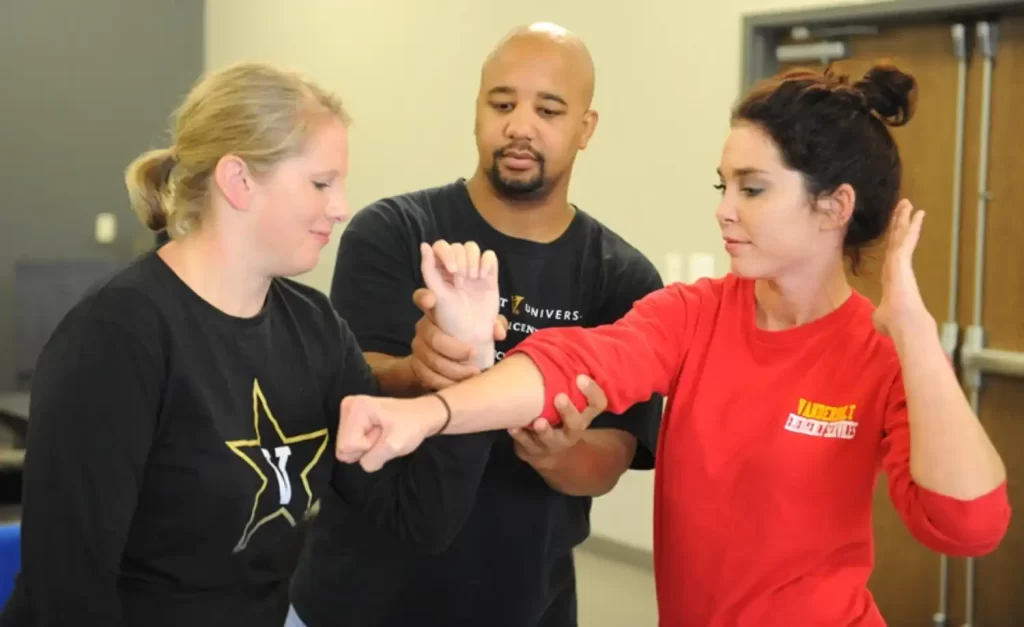Proactive and Reactive Interventions

Proactive Interventions
Proactive preventative and proactive developmental strategies are key to improving wellbeing and quality of life, and reducing all forms of restrictive practices, including physical restraint. These are designed to address personal and environmental conditions to ensure people have their needs properly met. When adults and children have their needs understood and better met behaviours of concern are much less likely. A natural consequence of this is reductions in restrictive practices.

Reactive Strategies: De-escalation and none-aversive reactive strategies (NARS)
However, we fully understand that there may be occasions when people do still become distressed. For this reason, we have a range of service specific de-escalation modules. These equip staff with the knowledge and skills to enable them to quickly help a child or adult who is becoming distressed to regain their equilibrium and thus avoid distress spiralling into crisis.
NARS are de-escalation strategies that can be effective even at the most heightened stages of arousal. Their sole purpose is to abruptly neutralise the impact of the driver for the distress and enable staff to avoid the use of physical restraint (e.g., Attentional shift, strategic capitulation, redirection to preferred items, redirection to obsessive/compulsive behaviours).

Reactive Strategies: Restrictive Physical Interventions and breakaways
We also have a range of physical restraint and breakaway techniques that may be used as a last resort. Organisations can rest assured of the most stringent application of the principles of least restriction and social validity in the formulation and teaching of these skills.
